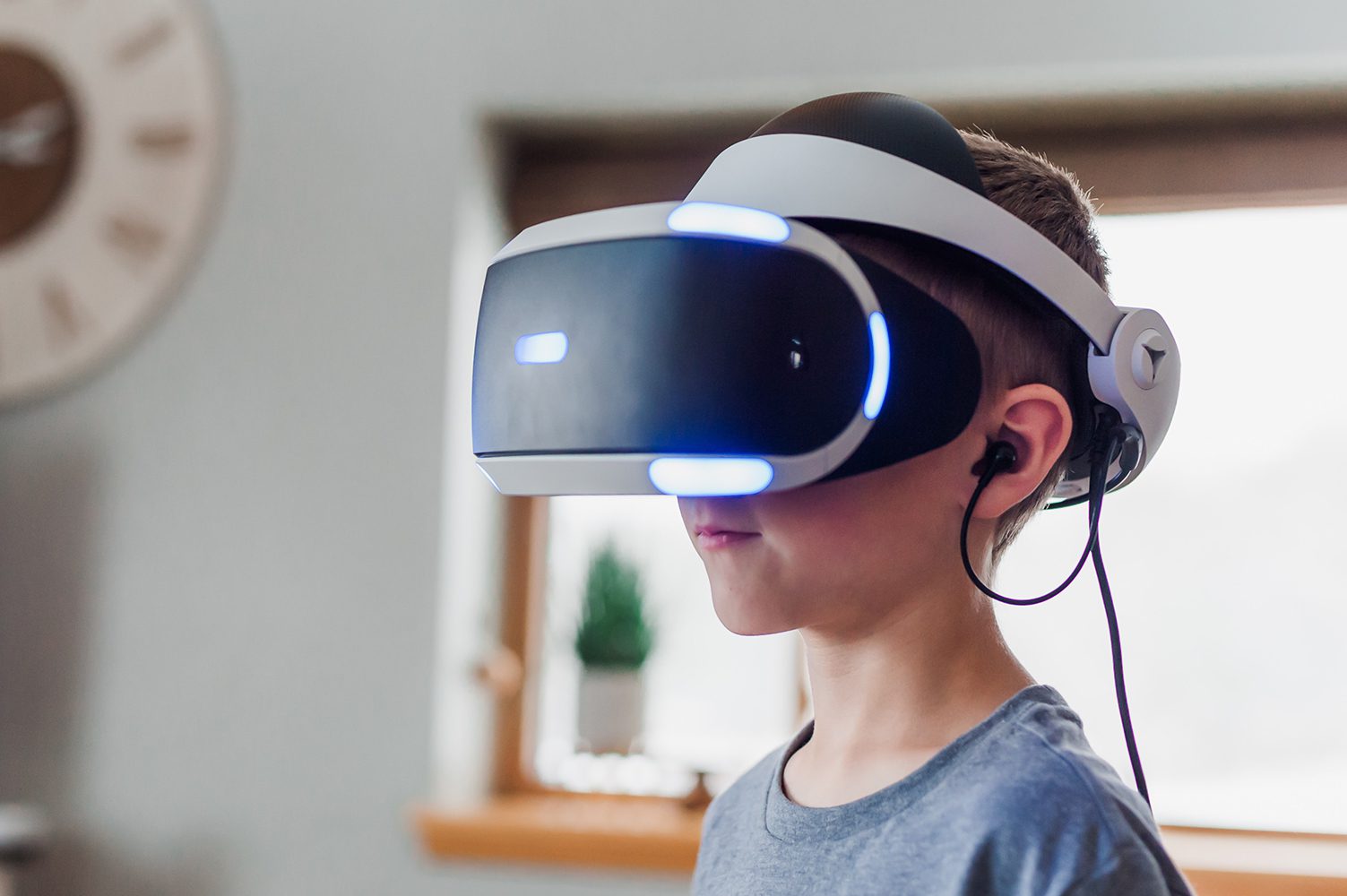Bringing VR Training Front & Center
VR training: it’s a real thing – while the masses might think of VR in regards to gaming, this technology offers much more than pleasure. Virtual environments are being used in a variety of industries to train individuals on everything from skilled trades to customer service in ways that emulate real-life scenarios. What we’ve discovered is that this technology has found its way outside the gaming niche as some of the skills or lessons we learn in virtual worlds translate to valid skills in reality.
We tend to think of VR technology as a toy, which it certainly is for some, but it turns out that it offers greater application than simply gaming. Businesses have discovered different ways to harness this technology to make training more accessible and reduce costs when compared to traditional training methods. By understanding the value of this technology, we feel it should inspire those looking to build next-gen training tools to supplement skill cultivation for any number of workplace scenarios.
VR training: not just for gamers
If you happen to play VR games, then you’re already familiar with the joy this tech provides. Whether it’s the PlayStation VR, Oculus, HTC Vive, or some other solution on the market, these games are truly a step up what consoles and PC gaming have furnished for decades.
Unlike the clunky devices from the early days of VR that were heavy and ridden with cords (among other obstructions) devices today are designed to be comfortable and furnish truly immersive experiences. The UX ofVR extends beyond the interfaces of the application as users interact with settings and gameplay in a simulated 3D environment but there is a physical component that’s simply not a factor with most other forms of technology. Not only are users interfacing with the virtual application, but they’re also doing so with novel tech outside of the typical “planes” (i.e. a keyboard, a touchscreen, etc.) we’re used to with our tech.
Thanks to feedback from gamers over time, modern VR tech has evolved to refine elements like comfort, kinesiology, and other movement-related mechanisms of interacting with the technology. Though this technology is still somewhat in its early stages, gaming has provided feedback that allows VR training to “fit” the masses in a way that feels organic.
Today, VR training developed by several companies provides a comfortable experience, even for those who aren’t technophile gamers. Most headsets are comfortable, there are minimal (if any) wires, you’re not restricted to a specialized room or container – essentially, it’s VR is typically easy and intuitive.
Overview of VR benefits
Before we talk about providers who offer VR training programs that help cultivate skills in the workplace, let’s talk about some of the inherent benefits of VR.
While you can find conflicting information on the web, there is somewhat of a consensus that VR helps with hand-eye coordination. This is helpful for children who game as it develops an associative ability from cognitive data into muscle memory which is also helpful when learning a work skill. Not surprisingly, some issues stem from prolonged use as systems like the Oculus Rift (and others) can disorient users for a time after gaming or VR training. Overall, the data seems to support that the long-term benefits outweigh short-term issues from VR systems.
Ultimately, VR shows positive results for improving memory – information that’s encoded into memory while in a virtual world then recalled in the real world parallels memories created in reality. In a nutshell, VR shows a positive impact on kinesthetic memory.
Companies that offer VR training programs for business
In recent times, many VR training companies have emerged to capitalize on this technology in a way that impacts the bottom line for businesses. By taking advantage of a VR training curriculum, businesses can effectively teach skills at costs that are often much lower than traditional training. Let’s look at a few companies that offer viable solutions for the modern world.
Interplay. This company offers a handful of different training curriculums for skilled trades including HVAC, solar, plumbing, electrical, and multi-family facility maintenance. Interplay uses an online platform from the SkillMill Team that compiles a pool of knowledge from experts in each category. Once training is complete, users are equipped to pass to national certifications in their respective fields.
Companies that use Interplay can setup their trainees for focused learning by first using a pre-assessment process to figure out an individual’s existing proficiencies. From there, tailored training experiences can be selected for a unique VR training experience. You can learn more by following this link where you can select any of the skills to learn more about the courses they offer.
Viar360. For companies that need to build unique training experiences, the Viar360 platform offers a set of tools to build VR training curriculum. They offer a system that allows designers to build a storyboard of interactive elements for training. Once complete, users can interact with the virtual training program through a headset, laptop, or smartphone, depending on how it was developed.
They further offer tools that allow developers to integrate the training curriculum into websites, mobile apps, or it can be tailored into a standalone app. This is useful in cases where the virtual training doesn’t involve a physical skill – for example, when building a customer service training curriculum, you may not need the fully immersive experience provided by a headset. VR training can be built and tailored for specific companies that can include detailed virtualizations of business software and other processes necessary to perform in a role.
STRIVR. This cleverly named company offers VR training curriculum for a multitude of industries as they focus on health and safety, operational efficiency, and customer service. They offer an end-to-end solution that includes software, services, content, and hardware. Businesses can set up VR training through STRIVR and essentially enjoy a hands-off experience as they manage everything through a secure web platform.
STRIVR hosts several use cases on their site that show scenarios and outcomes for industries that have taken advantage of their services. Perhaps some of their most interesting scenarios involve sports where their curriculum is used to safely train athletes. By training in a virtual world, athletes can refine skills and movements with less impact which in turn translates to improved skills in the real world.
Blue Label Labs develops apps for real and virtual worlds
Our company seeks out challenges in design and outcomes by embracing innovation and confronting the unconventional. With VR, we feel this technology is on the cusp of mass adoption because of the benefits it provides companies at a lower cost point than most traditional training programs. Feel free to touch base with Blue Label Labs to discuss your idea for a VR app, whether for business or pleasure, as we have the capability to build solutions beyond the out-of-the-box offerings currently on the market.









